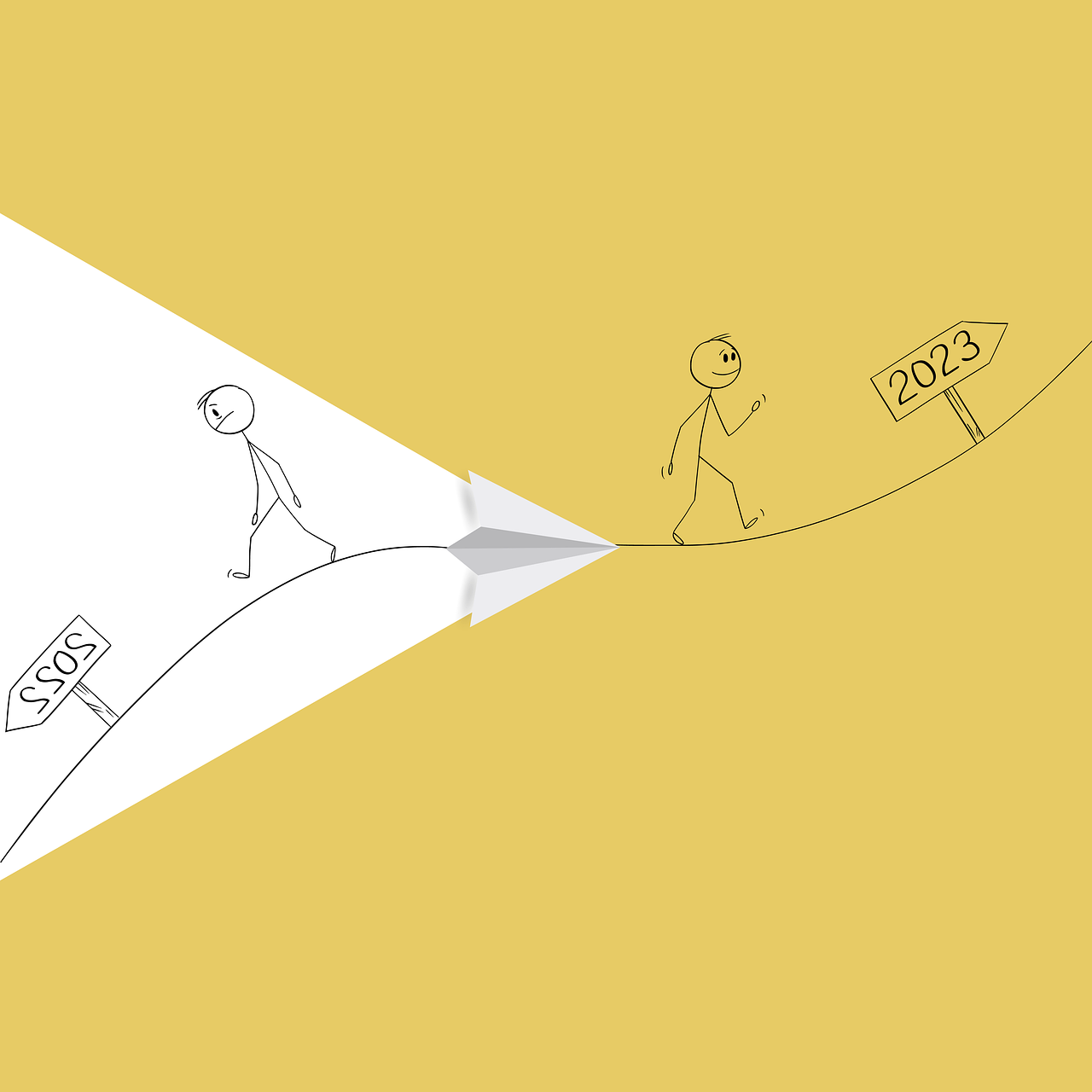Alain de Botton's Philosophy of Success - A Critical Analysis
In a world where the definition of success often revolves around wealth, status, and recognition, Alain de Botton emerges as a refreshing voice, challenging conventional notions. His philosophy encourages us to reconsider what success truly means, pushing us to explore deeper, more meaningful interpretations. Rather than getting caught up in the relentless pursuit of material gain, de Botton invites us to reflect on our personal values and aspirations, urging a shift from societal benchmarks to individual fulfillment. This article delves into his unique perspective, examining how it reshapes our understanding of success and happiness in contemporary life.
De Botton's approach to success is rooted in a critical analysis of modern society's fast-paced nature. He argues that traditional metrics—such as job titles, salaries, and the accumulation of possessions—often overshadow what it means to lead a fulfilling life. Instead of viewing success through a narrow lens, he advocates for a broader understanding that encompasses personal growth, emotional well-being, and the pursuit of passions. In this context, success becomes less about external validation and more about internal satisfaction. This shift is crucial, as it allows individuals to define success on their own terms, free from the constraints of societal expectations.
One of the most profound aspects of de Botton's philosophy is his emphasis on the role of failure in the journey toward success. He posits that setbacks and disappointments are not merely obstacles to be avoided but essential components of personal growth. Embracing failure equips us with resilience, teaching valuable lessons that contribute to our development. De Botton encourages us to reframe our understanding of failure, viewing it as a stepping stone rather than a stumbling block. This perspective fosters a culture of acceptance where individuals can pursue their goals without the paralyzing fear of making mistakes.
In the quest for success, de Botton prompts individuals to set personal goals that resonate with their core values. He argues that aligning our aspirations with what truly matters to us is vital for achieving genuine fulfillment. This means breaking free from the mold of societal expectations and instead focusing on what brings us joy and satisfaction. By doing so, we not only redefine success but also cultivate a sense of authenticity in our pursuits. This authenticity leads to a more profound sense of accomplishment, as we are no longer chasing someone else's definition of success but rather crafting our own unique narrative.
Cultural narratives play a significant role in shaping our understanding of success. De Botton critiques the dominant narratives that glorify wealth and fame, arguing that they can lead to disillusionment and unhappiness. He encourages us to question these cultural ideals and consider alternative stories that celebrate personal growth, community, and emotional well-being. By recognizing the power of these narratives, we can begin to shift our perspective on success, embracing a more holistic view that values relationships and personal fulfillment over material gain.
The tension between personal aspirations and societal pressures is a recurring theme in de Botton's work. He highlights the importance of authenticity in navigating this tension, urging individuals to prioritize their own desires over external validation. This journey toward authenticity may involve difficult choices, but it ultimately leads to a more meaningful and satisfying life. By understanding that true success is not about conforming to societal norms but rather about staying true to oneself, individuals can cultivate a sense of purpose that transcends superficial achievements.
De Botton firmly believes that success should contribute to our overall emotional health. He argues that true success is not merely about reaching a destination but also about enjoying the journey. This perspective encourages us to prioritize our mental and emotional well-being as we pursue our goals. By recognizing the interconnectedness of success and happiness, we can make more informed choices that lead to a fulfilling life. De Botton's insights remind us that emotional well-being is a crucial aspect of success, urging us to seek balance and contentment in all areas of our lives.
Another vital aspect of de Botton's philosophy is the significant impact that relationships have on our perceptions of success. He emphasizes that success is not an isolated achievement but is deeply intertwined with our connections to others. Building a supportive community and nurturing meaningful relationships are essential components of a fulfilling life. De Botton encourages us to invest time and energy into our relationships, as they provide the emotional support and encouragement needed to navigate the challenges of life and pursue our goals.
To foster meaningful relationships, de Botton suggests several strategies. First, he advocates for open and honest communication, allowing individuals to express their thoughts and feelings authentically. Second, he highlights the importance of empathy and understanding in building strong connections. By genuinely listening to others and valuing their perspectives, we can create a supportive environment that nurtures personal growth. Lastly, de Botton encourages us to prioritize quality over quantity in our relationships, focusing on deepening connections rather than merely expanding our social circles.
Romantic relationships, in particular, play a crucial role in shaping our overall sense of success and happiness. De Botton offers insights into nurturing these connections, emphasizing the importance of nurturing emotional intimacy and mutual support. He argues that a successful romantic relationship is not just about passion but also about companionship, understanding, and shared values. By investing in our romantic partnerships, we can enhance our emotional well-being and create a foundation for a fulfilling life.
- What is Alain de Botton's main argument about success? De Botton argues that success should be defined by personal fulfillment and emotional well-being, rather than societal standards of wealth and recognition.
- How does failure contribute to success according to de Botton? He believes that failure is an essential part of the success narrative, teaching resilience and valuable lessons that foster personal growth.
- Why are relationships important in de Botton's philosophy of success? Relationships provide emotional support and contribute to our overall sense of fulfillment, making them a critical aspect of understanding success.

Understanding Success in Modern Society
In today's fast-paced world, the concept of success has morphed into something far more complex than it once was. Traditionally, success was often measured by tangible achievements: a prestigious job title, a hefty salary, or the size of one's home. However, Alain de Botton challenges these conventional metrics, urging us to re-evaluate what success truly means in the context of our personal lives and values. He posits that success should not merely be a reflection of societal standards, but rather a deeply personal journey that aligns with our individual aspirations and emotional well-being.
In his view, the relentless pursuit of external validation can lead to a hollow existence, where we chase after accolades that ultimately leave us unfulfilled. De Botton argues that many of us fall into the trap of comparing ourselves to others, measuring our worth against the achievements of those around us. This comparison game can create a toxic cycle of dissatisfaction and anxiety, leaving us feeling inadequate and disconnected from our true selves.
Instead, de Botton invites us to explore a more nuanced understanding of success. He encourages us to ask ourselves: What does success look like for me? This introspective approach allows individuals to define success on their own terms, focusing on what genuinely brings them joy and fulfillment. For some, this might mean prioritizing family and relationships over career advancement, while for others, it could involve pursuing creative passions or contributing to their communities.
To illustrate this shift in perspective, consider the following table, which contrasts traditional success metrics with de Botton's more personal interpretations:
| Traditional Success Metrics | Personal Interpretations of Success |
|---|---|
| High-paying job | Meaningful work that aligns with values |
| Prestigious education | Continuous personal growth and learning |
| Large house | A cozy home filled with love |
| Social status | Authentic relationships and community |
As we navigate through life, it's crucial to remember that success is not a one-size-fits-all concept. By embracing de Botton's philosophy, we can cultivate a more fulfilling and authentic understanding of success that resonates with our personal values. This shift not only enhances our individual well-being but also fosters a more compassionate society, where we celebrate each other's unique journeys rather than competing against one another.
Ultimately, Alain de Botton's perspective on success serves as a reminder that our worth is not dictated by societal expectations but is instead shaped by our choices, relationships, and the impact we have on others. By redefining success in this way, we can embark on a path that leads to genuine happiness and fulfillment, free from the constraints of external validation.

The Role of Failure in Success
Alain de Botton's philosophy challenges the conventional notion that success is a straight path paved with victories. Instead, he argues that failure is not merely a setback but an essential component of the success narrative. In a world that often glorifies achievement, it's easy to overlook the lessons embedded in our failures. De Botton invites us to reconsider our relationship with failure, suggesting that it can serve as a powerful teacher. By embracing our missteps, we can cultivate resilience and foster personal growth.
Imagine a world where every stumble is seen not as a defeat but as a stepping stone toward greater understanding. De Botton posits that when we fail, we are granted an opportunity to reflect on our choices, learn from our mistakes, and ultimately emerge stronger. This perspective shifts the focus from the fear of failure to the potential for transformation. In this light, failure becomes a catalyst for self-discovery, pushing us to confront our limitations and re-evaluate our goals.
Furthermore, de Botton emphasizes that societal norms often paint a narrow picture of success, one that excludes the value of failure. Many of us grow up with the belief that success is synonymous with perfection. However, this unrealistic expectation can lead to a fear of taking risks and pursuing our passions. By redefining success to include our failures, we can liberate ourselves from these constraints and pursue a more authentic path.
To illustrate this point, consider the following table that outlines the different perspectives on failure:
| Traditional View | De Botton's Perspective |
|---|---|
| Failure is a negative outcome to be avoided. | Failure is a valuable learning experience. |
| Success is measured by achievements and accolades. | Success is defined by personal growth and fulfillment. |
| Failure leads to shame and embarrassment. | Failure fosters resilience and self-awareness. |
In this new framework, failure is not the end; it is a crucial part of the journey towards success. De Botton encourages us to embrace our failures with open arms, to view them as integral to our story rather than as obstacles. It's about shifting the narrative from one of shame to one of empowerment. By doing so, we can cultivate a more profound sense of purpose and direction in our lives.
Ultimately, the role of failure in success is about balance. It's about recognizing that while we may strive for excellence, we are also human, and with that comes the inevitability of mistakes. De Botton's insights remind us that our failures are not just bumps in the road; they are essential components of our personal and professional development. So, the next time you face a setback, remember: it's not a dead end, but rather a detour that can lead you to greater heights.
- Why is failure important in the journey to success? Failure teaches us valuable lessons and helps us grow, making it an essential part of the success narrative.
- How can I change my perception of failure? Start by viewing failure as an opportunity for learning and personal growth rather than a negative outcome.
- Can embracing failure lead to greater success? Yes! By accepting failure, you open yourself up to new experiences and insights that can ultimately lead to greater achievements.

Redefining Personal Goals
In a world where success is often measured by external standards—like wealth, status, and accolades—Alain de Botton challenges us to take a step back and redefine our personal goals. He posits that true fulfillment comes not from chasing societal benchmarks, but from pursuing what genuinely resonates with our individual values and passions. Just think about it: how many times have you found yourself racing toward a goal simply because it was the “right” thing to do in the eyes of society? It’s like running a marathon with no finish line in sight, fueled by the expectations of others rather than your own desires.
De Botton encourages a shift in perspective, urging us to ask ourselves critical questions: What does success truly mean to me? What are the goals that ignite my passion and align with my core beliefs? By engaging in this introspective process, we can begin to distinguish between authentic aspirations and those that are merely imposed by cultural narratives. This journey of self-discovery is not just liberating; it’s essential for achieving a sense of purpose and satisfaction in life.
Moreover, redefining personal goals involves a deep understanding of our strengths and weaknesses. De Botton suggests that we should embrace our unique attributes and consider how they can inform our aspirations. For instance, if you have a knack for creativity, why not set goals that allow you to explore that talent? Alternatively, if you’re more analytical, perhaps your path lies in problem-solving or innovation. Recognizing these traits can help tailor your goals to fit who you are, rather than who you think you should be.
It's also worth noting that the process of redefining personal goals is ongoing. Our aspirations can evolve as we grow and gain new experiences. Just like a tree that bends with the wind but remains rooted, our goals can be flexible while still being grounded in our values. De Botton emphasizes that it’s important to regularly revisit and reassess our goals, ensuring they continue to reflect our evolving selves. This dynamic approach not only keeps our ambitions fresh but also helps us stay aligned with our true selves.
In conclusion, Alain de Botton’s philosophy on redefining personal goals serves as a vital reminder that success is not a one-size-fits-all concept. By focusing on what truly matters to us, we can cultivate a more fulfilling and authentic life. So, the next time you feel pressured to conform to societal norms of success, remember: it’s perfectly okay to carve your own path. After all, life is too short to chase after someone else’s dreams.

Influence of Cultural Narratives
In today's world, the on our understanding of success is profound and pervasive. Alain de Botton argues that these narratives shape not only our aspirations but also our self-worth. From a young age, we are bombarded with stories—whether through media, literature, or social interactions—that define what it means to be "successful." These narratives often glorify wealth, power, and fame, painting a picture that can be both alluring and misleading.
For instance, consider the typical success story that features a self-made millionaire who rises from rags to riches. This tale, while inspiring, can create unrealistic expectations. It suggests that success is solely measured by financial gain, overshadowing other vital aspects of life such as happiness, fulfillment, and personal growth. De Botton emphasizes the importance of recognizing these cultural scripts and questioning their validity. He encourages us to reflect: Are we pursuing our dreams, or merely chasing someone else's definition of success?
Moreover, cultural narratives can foster a sense of competition that is often unhealthy. The constant comparison to others—whether through social media or professional settings—can lead to feelings of inadequacy and anxiety. De Botton highlights that when we allow these external narratives to dictate our paths, we risk losing touch with our authentic selves. This disconnect can result in a hollow pursuit of success, where we achieve milestones that don’t truly resonate with our values or desires.
To illustrate this point, let’s take a look at some common cultural narratives surrounding success:
| Cultural Narrative | Implication |
|---|---|
| Wealth Equals Success | Success is measured by financial status and material possessions. |
| Fame and Recognition | Being well-known is synonymous with being successful. |
| Career Advancement | Climbing the corporate ladder is the ultimate goal. |
These narratives, while prevalent, do not encompass the full spectrum of what success can mean. De Botton advocates for a more nuanced understanding that includes personal satisfaction, emotional well-being, and the cultivation of meaningful relationships. He asserts that by redefining our personal narratives, we can create a more balanced perspective on success that aligns with our true selves.
In conclusion, the cultural narratives that surround us can have a significant impact on our definitions of success. By critically examining these stories and their implications, we can reclaim our narratives and pursue a version of success that is authentic and fulfilling. De Botton’s philosophy encourages us to write our own stories, free from the constraints of societal expectations, and to embrace a definition of success that is uniquely ours.
- What is Alain de Botton's view on success? De Botton believes that success should be defined personally rather than by societal standards, emphasizing fulfillment and authenticity.
- How do cultural narratives affect our perception of success? Cultural narratives often promote materialistic and competitive definitions of success, which can lead to feelings of inadequacy.
- Why is failure important in the success narrative? Embracing failure allows for personal growth, resilience, and a deeper understanding of what success truly means.
- How can I redefine my personal goals? Reflect on your values and desires, and set goals that resonate with your authentic self, rather than conforming to societal expectations.

Personal vs. Societal Expectations
In a world buzzing with constant comparisons and relentless benchmarks, the clash between personal aspirations and societal expectations can be overwhelming. Alain de Botton shines a light on this tension, urging us to recognize how the treadmill of social norms often dictates our definitions of success. Imagine you’re running a race, but instead of focusing on your own goals, you’re constantly glancing at your competitors. This is the essence of societal pressure. We find ourselves chasing after accolades, promotions, and lifestyles that may not even resonate with our true selves.
De Botton posits that many of us fall into the trap of measuring our worth against the standards set by others. These standards are often influenced by cultural narratives that glorify wealth, status, and external validation. For instance, social media platforms bombard us with images of success that can distort our perceptions. We see curated lives that appear perfect, leading to feelings of inadequacy and self-doubt. This raises an important question: What if success is not about the number of followers or the size of your paycheck? What if it’s about finding joy in your daily life and aligning your goals with your personal values?
To illustrate this point, consider the following table that contrasts societal expectations with personal values:
| Societal Expectations | Personal Values |
|---|---|
| High income | Financial security |
| Career advancement | Job satisfaction |
| Fame and recognition | Meaningful contributions |
| Perfect relationships | Authentic connections |
This table highlights how societal norms often prioritize superficial markers of success, while personal values focus on deeper, more meaningful aspects of life. De Botton encourages us to break free from the mold and to ask ourselves what truly matters to us. By doing so, we can cultivate a sense of authenticity that allows us to live more fulfilling lives.
Ultimately, the journey toward success is as unique as each individual. It’s essential to strike a balance between recognizing societal pressures and staying true to our personal goals. By embracing our individuality and rejecting the one-size-fits-all approach to success, we can pave our own paths and find fulfillment on our terms. This is where the real magic happens—when we align our actions with our beliefs, we not only redefine success but also enrich our lives in ways that societal standards could never measure.

Success and Emotional Well-being
When we think about success, our minds often race to images of wealth, accolades, and social status. However, Alain de Botton invites us to reconsider this narrow definition. He argues that true success is not merely about external achievements but is deeply intertwined with our emotional well-being. Imagine success as a beautiful tapestry, where each thread represents different facets of our lives—career, relationships, personal growth, and emotional health. If one thread is frayed, the entire tapestry can lose its vibrancy. This metaphor encapsulates the essence of de Botton's philosophy.
De Botton posits that success should enhance our emotional landscape, rather than dominate it. He emphasizes that a fulfilling life is one where our achievements align with our personal values and contribute positively to our mental state. Consider this: how often do we chase after goals that society deems successful, only to find ourselves feeling empty or unfulfilled? This disconnect can lead to stress, anxiety, and a sense of inadequacy. Instead, de Botton advocates for a more holistic approach, where we prioritize our emotional health alongside our ambitions.
To illustrate this point, let’s explore some key factors that link success and emotional well-being:
- Authenticity: Success that reflects our true selves fosters a sense of belonging and satisfaction.
- Resilience: Embracing failures as learning opportunities can enhance our emotional strength.
- Community: Building supportive relationships contributes to our happiness and sense of achievement.
Moreover, de Botton highlights the importance of balance. In a world that constantly pushes us to achieve more, we must ask ourselves: are we sacrificing our mental health in the pursuit of success? The answer often lies in our ability to set boundaries and prioritize self-care. For instance, taking time to recharge, reflecting on our achievements, and celebrating small victories can significantly boost our emotional well-being.
In conclusion, Alain de Botton’s perspective on success challenges us to redefine what it means to be successful. By shifting our focus from societal expectations to personal fulfillment, we can cultivate a deeper sense of happiness. Ultimately, success should not be a source of stress but a pathway to a more enriching and emotionally satisfying life. As we navigate our journeys, let’s remember that true success is not just about what we accomplish, but how we feel about those accomplishments.
- What is Alain de Botton's definition of success? De Botton defines success as a personal and emotional journey rather than merely achieving societal benchmarks.
- How does failure relate to success according to de Botton? He believes that failure is a crucial part of the success narrative, fostering resilience and personal growth.
- Why is emotional well-being important in the context of success? Emotional well-being ensures that our achievements contribute positively to our overall happiness and fulfillment.

The Impact of Relationships on Success
When we think about success, our minds often drift towards personal achievements, career milestones, and financial gains. However, Alain de Botton challenges this conventional narrative by emphasizing the profound impact that relationships have on our definition of success. In his view, success is not merely an individual pursuit; it is deeply intertwined with the connections we forge with others. Imagine trying to climb a mountain alone versus having a supportive team by your side. The latter not only makes the journey more enjoyable but also significantly increases the likelihood of reaching the summit.
De Botton argues that our relationships serve as a mirror reflecting our self-worth and aspirations. When we are surrounded by supportive friends and family, we feel empowered to chase our dreams. Conversely, toxic relationships can sap our energy and derail our ambitions. This dynamic raises an important question: How do our relationships shape our understanding of success? To answer this, we can look at a few key factors:
- Emotional Support: A strong network of relationships provides the emotional backing necessary to navigate life's challenges. When we face setbacks, having someone to lean on can make all the difference.
- Shared Experiences: Success is often sweeter when shared. Celebrating achievements with loved ones creates lasting memories and fosters a sense of belonging.
- Accountability: Relationships can serve as a source of accountability. When we share our goals with others, we are more likely to stay committed and motivated.
Moreover, de Botton highlights that the quality of our relationships matters just as much as the quantity. Having a few deep, meaningful connections can be more fulfilling than numerous superficial ones. This brings us to the idea of building meaningful connections. How can we cultivate relationships that enrich our lives and contribute to our sense of success?
One effective strategy is to invest time and effort into nurturing existing relationships. This could mean scheduling regular catch-ups with friends, being present during family gatherings, or even reaching out to acquaintances who share similar interests. By doing so, we create an environment where mutual support flourishes, leading to a more fulfilling understanding of success.
De Botton also emphasizes the significance of romantic relationships in shaping our overall sense of success. He posits that a loving partnership can provide a strong foundation for personal growth and happiness. When we feel accepted and valued by our partners, we are more likely to pursue our aspirations with confidence. However, nurturing these connections requires effort and understanding. It’s essential to communicate openly, share vulnerabilities, and support each other's dreams.
Ultimately, the impact of relationships on success cannot be overstated. They act as both a catalyst for personal growth and a buffer against the stresses of life. In a world that often prioritizes individual achievement, de Botton's philosophy serves as a poignant reminder that success is not just about what we accomplish alone, but also about how we connect with others along the way.
- How can I improve my relationships to enhance my sense of success?
Invest time in meaningful conversations, be present, and show appreciation for those you care about. - What role does emotional support play in achieving success?
Emotional support can boost your confidence and resilience, making it easier to overcome challenges. - Can toxic relationships hinder my success?
Yes, negative relationships can drain your energy and impact your motivation, making it harder to pursue your goals.

Building Meaningful Connections
In today's hyper-connected world, where social media often masquerades as genuine interaction, the quest for meaningful connections can feel like searching for a needle in a haystack. Alain de Botton emphasizes that true success is not merely about personal achievements or accolades; it’s deeply rooted in the quality of our relationships. After all, what good is climbing the corporate ladder if you’re doing it alone? Building connections that matter requires intention, vulnerability, and a willingness to invest time and energy into others.
One of the first steps in cultivating meaningful relationships is to be present. In a society where distractions are rampant, showing up—both physically and emotionally—can make a world of difference. When we engage in conversations with our friends or family, it’s essential to listen actively and respond thoughtfully. This means putting down our phones, making eye contact, and truly absorbing what the other person is saying. By doing so, we communicate that we value their thoughts and feelings, fostering a deeper bond.
Moreover, de Botton suggests that vulnerability is a crucial component of forming authentic connections. It might seem counterintuitive, but sharing our struggles and fears can actually strengthen relationships. When we open up about our challenges, we invite others to do the same, creating a safe space where mutual support can flourish. This exchange of vulnerability is akin to building a bridge; it connects us and allows us to traverse the often tumultuous waters of life together.
Another vital aspect of building meaningful connections is the quality of time spent together. It’s not just about the quantity of interactions but rather the depth of those moments. Engaging in activities that both parties enjoy can create shared experiences that deepen the relationship. Whether it’s cooking a meal together, going for a hike, or simply enjoying a cup of coffee at a local café, these moments can become the fabric of lasting memories. Additionally, it’s important to be intentional about maintaining these connections. Regular check-ins, whether through a text or a phone call, can help keep the relationship alive and thriving.
Finally, de Botton highlights the importance of community in our quest for meaningful connections. Surrounding ourselves with a supportive network can enhance our sense of belonging and contribute to our overall happiness. Participating in community events, volunteering, or joining clubs can be excellent ways to meet new people and forge connections based on shared interests. It’s a reminder that we’re not alone in our journey and that there’s strength in numbers.
In conclusion, building meaningful connections is an essential part of Alain de Botton's philosophy on success. By being present, embracing vulnerability, cherishing quality time, and fostering a sense of community, we can create relationships that enrich our lives and contribute to our overall sense of fulfillment. After all, as de Botton aptly puts it, “We are all just walking each other home.”
- How can I start building meaningful connections? Begin by being present in your interactions and actively listening to others.
- What role does vulnerability play in relationships? Vulnerability fosters trust and allows for deeper connections by encouraging open communication.
- Why is community important for personal success? A supportive community provides a sense of belonging and shared experiences, enhancing emotional well-being.

Success in Romantic Relationships
When we think about success, our minds often drift towards career achievements, financial stability, or personal accolades. However, Alain de Botton argues that one of the most profound areas where success manifests is in our romantic relationships. He suggests that the quality of our connections with partners can significantly influence our overall sense of happiness and fulfillment. After all, what is success if not the ability to share our lives with someone who understands us, supports us, and grows alongside us?
In a world that constantly bombards us with images of perfect relationships, it’s easy to feel disheartened or pressured to conform to unrealistic ideals. De Botton challenges this notion by encouraging us to define success in romantic relationships on our own terms. Instead of striving for a picture-perfect partnership, we should focus on building authentic connections that are rooted in mutual respect, understanding, and love.
He emphasizes that successful romantic relationships are not devoid of conflict or challenges. In fact, it’s through navigating these difficulties together that couples can truly grow. The key lies in how we handle disagreements and differences. Here are some essential elements that de Botton believes contribute to the success of romantic relationships:
- Communication: Open and honest dialogue is crucial. Couples should feel safe expressing their thoughts and feelings without fear of judgment.
- Empathy: Understanding each other's perspectives fosters a deeper emotional connection.
- Commitment: A mutual dedication to the relationship helps partners weather storms together.
Moreover, de Botton suggests that romantic success is often intertwined with our emotional well-being. He posits that when we feel secure and valued in our relationships, we are more likely to thrive in other areas of our lives. This interconnectedness highlights the importance of nurturing our romantic bonds as a pathway to achieving a sense of success.
Interestingly, de Botton also points out that societal pressures can distort our perceptions of what a successful relationship should look like. Many people get caught up in the idea that their relationship must be flawless or match the glamorized versions portrayed in media. This often leads to dissatisfaction and feelings of inadequacy. Instead, de Botton encourages individuals to embrace the reality of love, which includes imperfections, growth, and the occasional misstep.
In conclusion, success in romantic relationships, according to Alain de Botton, is about more than just being in love. It’s about fostering a partnership that allows both individuals to flourish while supporting one another through life's ups and downs. As we redefine what success means in our romantic lives, we may find that the journey is just as important—if not more so—than the destination.
- What does Alain de Botton mean by success in relationships?
De Botton believes that success in relationships is defined by the quality of connection, communication, and mutual growth, rather than conforming to societal expectations. - How can I improve my romantic relationship?
Focus on open communication, empathy, and commitment. Prioritize understanding each other’s needs and fostering a supportive environment. - Are conflicts a sign of failure in a relationship?
No, conflicts can be an opportunity for growth. How couples navigate these challenges is crucial to the success of their relationship.
Frequently Asked Questions
- What is Alain de Botton's definition of success?
Alain de Botton defines success not just in terms of traditional achievements like wealth or status, but as a more personal and meaningful journey. He emphasizes that success should align with individual values and aspirations, rather than societal expectations.
- How does failure contribute to success according to de Botton?
De Botton argues that failure is an integral part of the success narrative. He believes that setbacks can foster personal growth and resilience, teaching valuable lessons that ultimately lead to a more fulfilling understanding of success.
- What role do personal goals play in achieving success?
Personal goals are crucial in de Botton's philosophy. He encourages individuals to set goals that resonate with their own values, rather than conforming to what society dictates as successful. This approach leads to a more authentic and satisfying life.
- How do cultural narratives influence our view of success?
Cultural narratives shape our understanding of success by promoting certain ideals and benchmarks. De Botton critiques these narratives, urging individuals to question and redefine what success means to them personally, rather than blindly following societal norms.
- What is the relationship between success and emotional well-being?
De Botton posits that true success should enhance emotional well-being. He highlights that success should not be merely about external achievements but should also contribute to an individual's overall happiness and mental health.
- How do relationships impact our perception of success?
According to de Botton, relationships play a significant role in shaping our understanding of success. He emphasizes the importance of community and support systems, suggesting that meaningful connections can enrich our lives and redefine our personal success.
- What strategies can help build meaningful connections?
De Botton suggests several strategies for fostering meaningful relationships, such as being open, vulnerable, and genuinely interested in others. Building trust and engaging in deep conversations can lead to stronger, more fulfilling connections that enhance our sense of success.
- How does de Botton view success in romantic relationships?
De Botton believes that romantic relationships are crucial to our overall sense of success and happiness. He offers insights into nurturing these connections, emphasizing communication, understanding, and shared values as key components of a successful partnership.



















